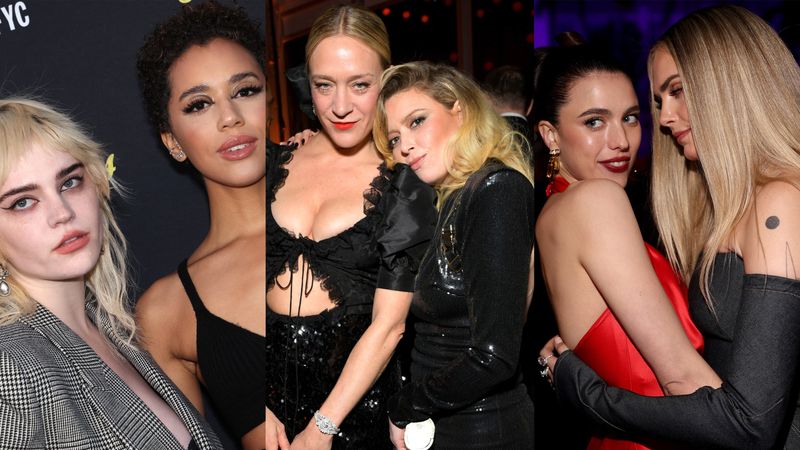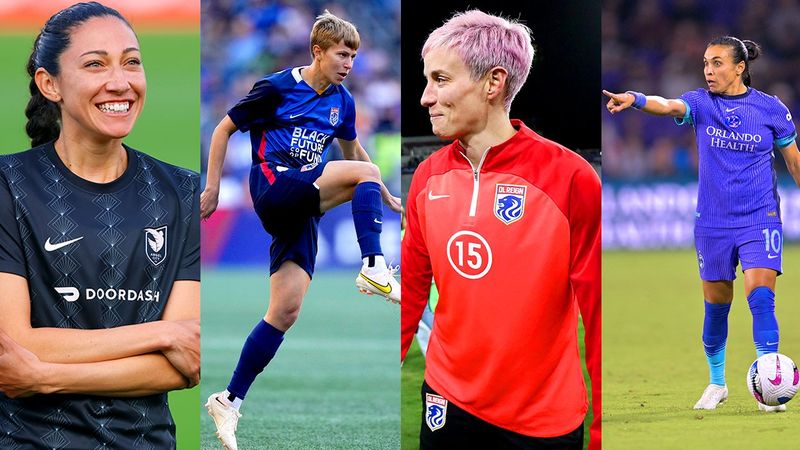When Annie Lennox burst on to the popular music scene in the early eighties, she was a zeitgeist. From her instant fans to young lesbians and gays who found common ground in her unapologetic androgynous style and fierce theatricality, many in the MTV generation recall just where they were when Lennox first flashed her wildly expressive eyes across their television screens in the "Sweet Dreams" video.
Now, 26 years after she first topped American charts as part of Eurythmics, Lennox, 53, is as prescient as ever, with a newly released anthology of her solo work, The Annie Lennox Collection, showcasing works from Diva (1992), Medusa (1995), Bare (2003) and last year's Songs of Mass Destruction. In addition to hits including her imperative anthem "Why," "Walking on Broken Glass," "A Thousand Beautiful Things," and "Pavement Cracks," for the Collection, Lennox delivers two stunning new songs, "The Pattern of my Life," and a breathtaking rendition of Ash's "Shining Light."
A recent recipient of the American Music Awards' "Award of Merit," a gracious Lennox, who'd had spinal surgery just three months before, wowed the crowd when she accepted the honor from Justin Timberlake before taking to the piano to deliver a stirring performance of "Why."
If creating the soundtrack for a generations of music, video and style mavens weren't enough, an ardent advocate for human rights, Lennox created her SING campaign to raise funds and awareness to bring about change to the plight of women and children living with HIV / AIDS in South Africa, helping those living amid the pandemic access testing, treatment, education and further prevention.
Just before the release of the Collection last month, the humanitarian and icon chatted with SheWired about her American Music Awards' experience, narrowing down the pool from her dozens of contenders to just 14 songs on the Collection, and of course, about her passion project SING and her ardent work with women and children in South Africa.
TG: Hello, where are you calling from today?
AL: I'm in London. That's where I live.
TG: Okay. I know you don't have a whole lot of time so I'll get to the questions and maybe a couple statements as well.
AL: Surely.
TG: Well first, congratulations on this collection it's a wonderful achievement.
AL: Thank you.
TG: I wanted to talk to you first about your appearance at the AMA's and the award you received there. That was quite a triumph of a performance having just come back from back surgery months before anybody anticipated you'd be up and about. Is that true?
AL: (Laughs) At the time, when I had the surgery I didn't even know if I would be able to walk again properly because it depended on how successful it was going to be. And I only took a couple of weeks off. My foot is still not right, it's still got some weird thing that its kind of permanently numb. And it's a strange thing to live with really. I've been doing physical therapy and I actually still don't know if it will ever be back to normal again. But it's just one of those things. You kind of realize, wow, you've been so fortunate that nothing like that happened before. I'm grateful for all the years that it didn't happen to me. I look at people in the street limping and im like, "Ohhf! I know how you feel!" So it makes you empathize. And it tires me out, to be quite frank with you, it is exhausting. But you know, you have to be pragmatic when things like that happen.
TG: How has it affected your stamina at concerts?
AL: Yeah, I don't think I could do a normal concert anymore at this point and time. I mean, obviously I'm able to sit at a piano, and I function and I can stand. But I don't think I'm at the stage where I could. I mean it's enormously exhausting doing concert after concert. And I don't know that I could do it the way I used to. But you know, we'll see, we'll see.
TG: I have faith that if anyone could bounce back and do full-on concerts, you could.
AL: Im able to make appearances you know, and that's good enough.
TG: Right. Well I have faith. I just saw you about a year ago at The Wiltern in Los Angeles and you had as much energy and looked as amazing as when I saw you in the 80's.
AL: Well thank you. Thank you very much. It' just all smoke and mirrors trust me. (laughs)
TG: Well you have the best ones then.
AL: Thank you.
TG: How did it feel to land that Lifetime Achievement from the AMA's?
AL: I felt incredibly touched and honored that I would receive such an award. I'm not an American citizen, I'm British. And for me to be given an AMA, it's something that I don't take lightly. I was just bowled over by it, to be quite frank with you. There are some incredible artists up there and to feel that people in America, you know, the powers that be, think that I should receive such a thing, is really hugely gratifying. And we- artists don't make the music to receive awards. You make music because you're drawn towards that in any case. But its certainly not to be sniffed at, I have to say.
Justin Timberlake presenting Lennox with the Merit Award
TG: Before I talk too much more about your music, I want to make sure I have time to talk to you about your project with SING.
AL: Yes.
TG: You've already celebrated a one year anniversary?
AL: Yes that was on World AIDS Day, on the first of December.
TG: Can you talk a little about some of the strides and or some of the setbacks that happened in the year?
AL: Yes, absolutely. For many years I've been involved in one capacity or another with all kinds of organizations and charities, helping to support them with either appearances, or donations, or promoting, etc... so many. But there was always this need inside me to really get on board with a specific thing, and see what I could drive to focusing my efforts by myself. And in 2003, I had the opportunity to go to South Africa to perform for Nelson Mandela's inauguration of the 46664 Company, which is his HIV/AIDS foundation.
It was the first step to a deeper relationship with South Africa, and particularly with the HIV AIDS pandemic, where I was taken in, with other artists. We were taken to hospitals and orphanages, clinics and homes to get a deeper understanding of how the pandemic is affecting people. And it was a revelation to me.
TEG: Can you tell me more about that?
AL: First of all, because I hadn't really truly appreciated the pandemic is affecting woman primarily and children. And what that actually looks like. And you know, its something of a stigma. Let's say I went to Uganda and I understand that one in five in the population are infected. And you know, to stand in a crowd of people and look at everyone thinking '1 in 5, 1 in 5,' its very leveling. It's very sobering.
Annie Lennox performs with South Africa’s Children of Agape Choir
TEG: That is an incredibly difficult statistic to wrap one's head around.
AL: And to also know, inevitably, in many of the different countries in Africa, especially where you have the highest instances of the virus, that people are not able to access treatment. They're not able to get proper care and attention. It's beyond imagination.
TEG: What other experiences impacted your desire to create SING?
AL: I went subsequently to a part of South Africa in the eastern cape, we went to Lusikisiki, to a part that is very impoverished, to meet people and to see what they're lives are like when they are suffering in the sort of degraded stages of AIDS... when they're no longer able to take care of themselves.
To actually see what its like to be abandoned there without access to the things that most people have in the west... For example, a rural area can be very remote and the clinics can be many miles away, so that person is obliged to have to be carried on someone's back or taken in a wheelbarrow. And that's the only means of transport. And that's not an odd thing, its pretty common place.
TEG: That's an image that most of us can't begin to comprehend. So, it was that immersion that moved you closer to developing the project?
AL: To sort of witness that and participate in that and to see what the long lines and queues are like when people are coming everyday to a clinic hoping to be seen by a doctor who might give them a prescription so they can get access to treatment. You know the whole thing is just mind-boggling. And I saw that for myself. So the SING campaign is my own contribution to that situation.
Wherever I go where I talk about HIV. I go to talk about it and show my film clips we filmed in South Africa to try to explain to people in a more humane kind of way. You can read the figures and they're extraordinary. But when you see a film clip that really takes you into a person's home, maybe to a child headed household where you see children trying to survive because the parents have died from an AIDS-related illness, and those kids are struggling...and you know there are million of kids like that across the whole of Africa. And you think, "What can I do? How can I respond in a way that will make a difference?"
So I teamed up with Treatment Action Campaign. It's a grass roots organization that I think does great work.
TEG: So you're in there working with the people who are in it from the ground up.
AL: That's really what thrills me; is to work with people, ordinary people that are directly being affected and can directly make a difference. In terms of, you know, trying to work with stigma, trying to work with people's attitudes towards sexual relationships, testing all these things... You know it's been a university to be frank.
TG: Back when the confirmation hearings for Hillary Clinton as Secretary of State were underway, she was asked about violence against women in various parts of the world. What are your thoughts on violence against women in relationship to what your work with HIV / AIDS and SING?
AL: Absolutely, Absolutely. Well, this is a huge factor. In a social culture where women have very few rights to their sexual health, to legal rights... to protect themselves and to spread the message in the community that if you do perpetrate violence and rape --and not only with women, but children also --which is really endemic --that you will be taken to court, you will be imprisoned; there will be some kind of action taken against you. Which is hopefully some kind of help towards prevention.
more on next page...
\\\
(continued)
TEG: But that isn't generally the case right? Women aren't afforded the institutionalized tools to protect themselves....
AL: In most of the communities, I'm afraid women do not have these rights, generally speaking. And it's a catastrophe. I've been to rape crisis centers where young women and children are incredibly affected. In one township they say there's a rape every 26 seconds. I mean it's really that endemic. And it's a travesty. And on obviously in a community where HIV is so prevalent and women are forced to have sex, raped in that way - unprotected --then that rape victim must know their HIV status.
TEG: There appears to be a huge ripple effect from the violence, the HIV and so on.
AL: Obviously. And maybe they would find that they're pregnant because of that rape. It leads to all kinds of impact, as you can imagine, on the community at large. The issue is huge and it is a can of worms. And one doesn't really quite know sometimes how to approach it. But from my approach, I have gone from specifically trying to highlight the situation-- how women become victims, and how children therefore become victims. And trying to help to implement education, raising awareness, teaching people that you have rights and these are your rights. And once people have that education and knowledge, it can change their viewpoints and it can empower them sort of not feel so victimized.
TEG: Absolutely. It's an amazing project. And so inspiring. I do want to get to the Annie Lennox Collection, which is just great. How do you go about vetting your own music and cherry picking a handful of songs to fit on a collection?
AL: Yeah, well I made a start you know? I just had to look at all the tracks and all the albums and kind of make a tick as to 'ah, I think that's really a 3-star contender, that's a 2-star one' you know...what would I think would be the right one. And so we went through that and did the best. And it isn't easy, but I think we've really come up with a very beautifully represented catalog there.
TEG: I love all of the songs on the collection. You are nearly as known for your videos as your music and voice will you be doing anything visual to accompany the collection?
AL: There'll be a DVD released, so every one has its own video and I'm really thrilled with that because its really lovely to think there's a visual representation to present along with each song, which is just so nice.
TEG: And will these be videos that you've already done or are you shooting new videos?
AL: Yes, Ive made two brand new videos for the new songs that are going to be on the album. One is called "Shining Light" and the other one is "Pattern of My Life"
TEG: That's exciting for your fans and for you.
AL: Yeah it is! They're beautiful. I'm really delighted with them. They're just getting their final touches now.
TEG: I wanted to touch on your dramatic side a little bit. Since Eurhythmics your videos have gone hand in hand with the music whether you're live or whether it's on video. You never took that leap into acting in an actual film? I'm just wondering?
AL: Well, you know, it was often suggested that I should. I dipped my toe into it once or twice. But actually, you know, at the end of the day, I wanted to have a family and I'm not such a sort of ambitious person that I wanted to be all things to all people, so, I didn't pursue it as a career or a byproduct of a career. But you know, I would love - still -- would love if someone would give me a part as a baddy in some sort of really dark horror film or some kind of hilarious comedy. I think I could be really good at that.
TEG: You'd make a terrific baddy and you've shown your flair for comedy in several of your videos.
AL: But you know, you can't do everything.
TEG: Well you haven't yet, but you might get to it.
AL: Well you never know!
TEG: Because I'm a movie buff, and because you've always been so visual, are you much into cinema? I mean do you go often?
AL: I would love to go more to the cinema but I find that my days are so taken up. I never stop. My life equals my work more or less. And also the advocacy that I'm doing, and my activism - it's pretty full on, so I never really stop. And I find that there are films that come out, there's a couple of films at the moment I'd love to see, like Slumdog. I hope I can get a chance, but inevitably I sort of end up missing. I should be better at that.
TEG: [laughs] there's some good ones out there. If you do get a chance.
AL: Yeah!
TEG: I just want to make sure I ask you, because you've been such an icon to the gay community, both men and women, which is kind of a rarity, and I wonder what your reaction to Prop 8 passing and the struggle for marriage that gays and lesbians continue to face? If you have a reaction?
AL: The way I see marriage, really, is that it's a legal contract. It's a binding contract. And you really come to understand that very well when it comes to divorce. And for me, personally, I don't think that marriage is necessary in a contract, in a relationship; excuse me...from a heterosexual point of view. And I certainly probably will never marry again. But I've been through marriage and divorce a couple of times. I've sort of done the thing, got the t-shirt, you know?
TEG: So, at this point, it sounds like you're generally not a fan of marriage period.
AL: But having said that, I feel that when it comes down to it...what the law protects. And when it comes to the things that come with lasting relationships -- property and rights, then why should that distinction be made? If you're gay and you have a relationship, I mean, why should I be allowed to have those rights and someone who is differently oriented sexually be suspended from them?
TEG: Exactly. Is there anything else you wanted to say about your music?
AL: Right now, im just tying up the ends of The Ultimate Collection. Trying to make a beautiful package that people will really enjoy if they're buying CDs. It's just kind of nice to rekindle the work I've done over the last few years. And I'm having fun making these videos and that's really nice.
TEG: Is there anything else you're working on you'd like to mention...about your activism?
AL: I spent time with Sting many, many years ago. And I could see that Sting was getting requests by a lot of non-profit organizations to represent them. I saw the Amnesty tour that happened in the 80's and I thought, "Oh my god I love this! I love it when music and activism is bound together; I think that's so strong. And I wanted to be much more that kind of person. I've been able to sort of direct my life into that place and I love to put those two things together because I do think it works. I think that when I have been given so many opportunities in my life, it gives me an opportunity to give back and I love that. And you know, its very satisfying.
TEG: I can imagine. Plus, you're a mom, so you've got a lot going on.
AL: Well, since I had my daughters, I am so much broader in the sense of being a human being and being empathetic. I also want to work in terms of women's rights. I think that I was given the chance to have my children safely. I'd love to see the mortality rate change when it comes to maternal health. I'd love to see that coming down in developing countries. There are so many more things one can do. And you know, there's just so much more we can do.
TEG: Well you're on a really great path for getting the word out there. So thank you.
AL: Thank you very much.
https://www.annielennox.com/
https://www.annielennoxsing.com/
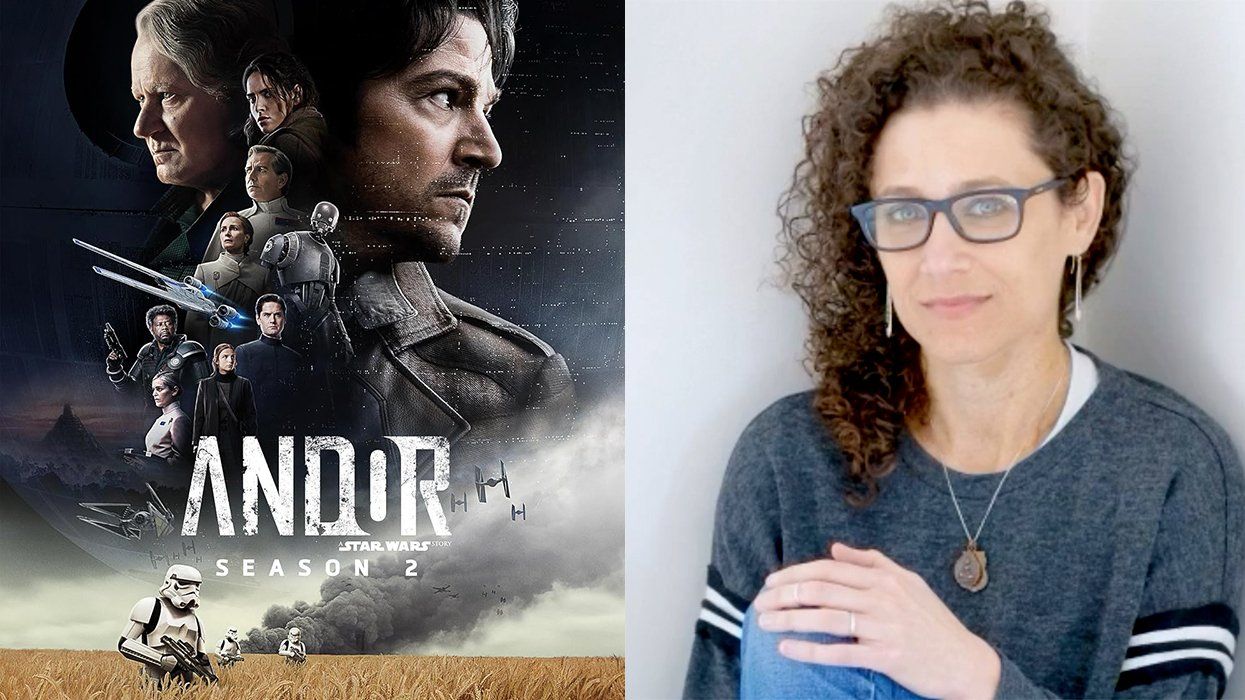




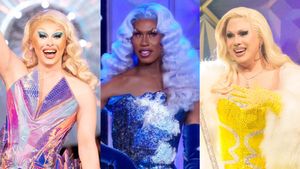
















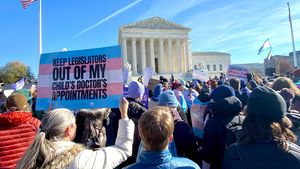





















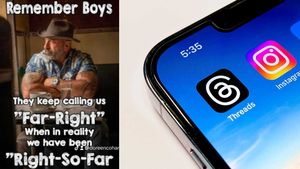










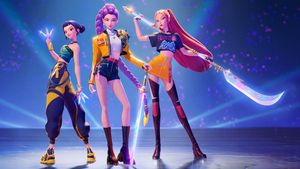




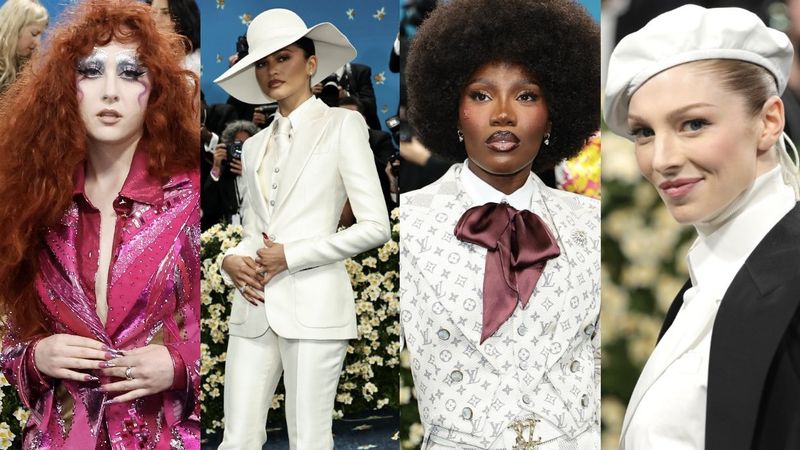



































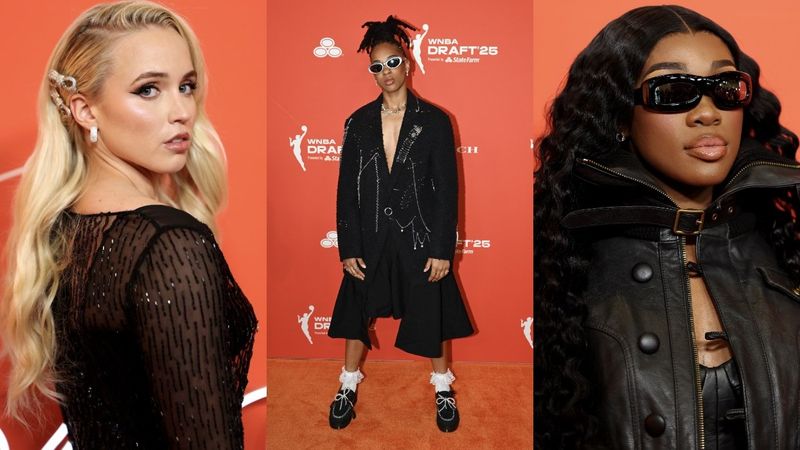
 Cindy Ord/Getty Images
Cindy Ord/Getty Images










